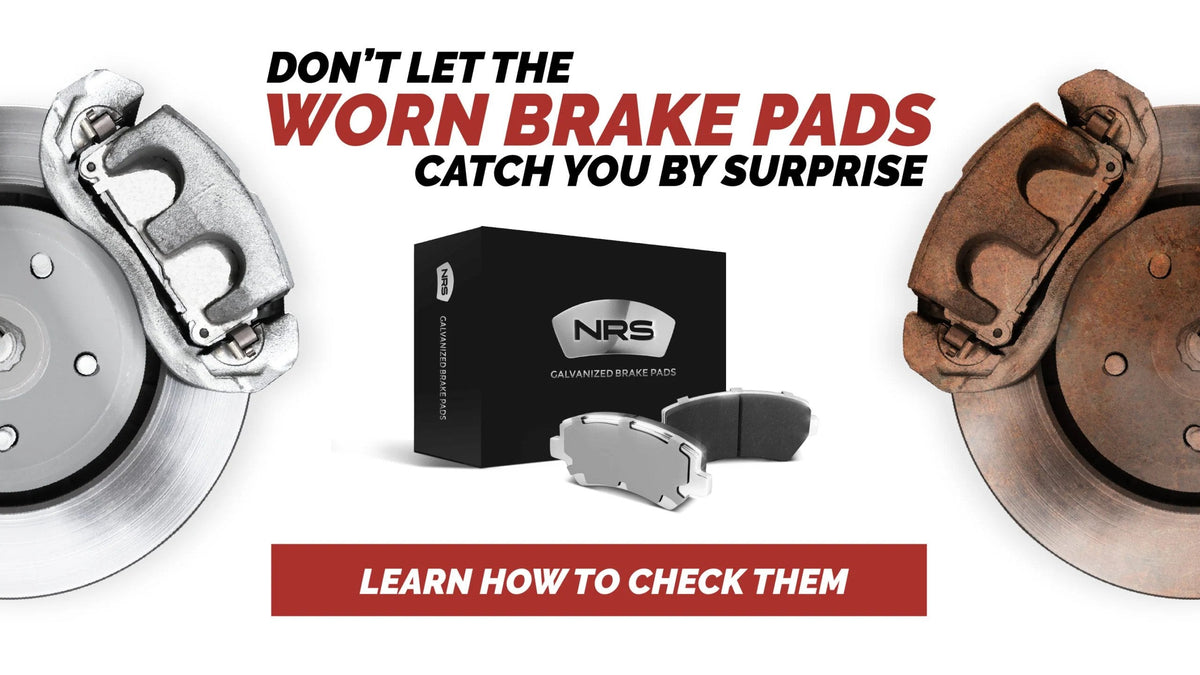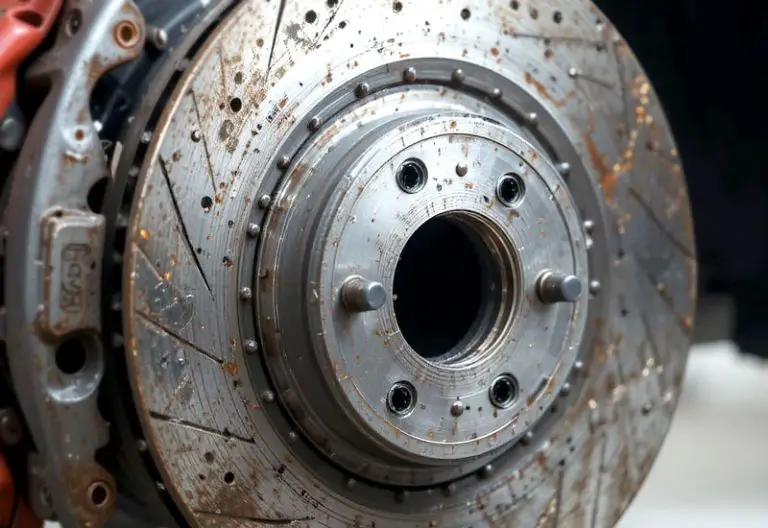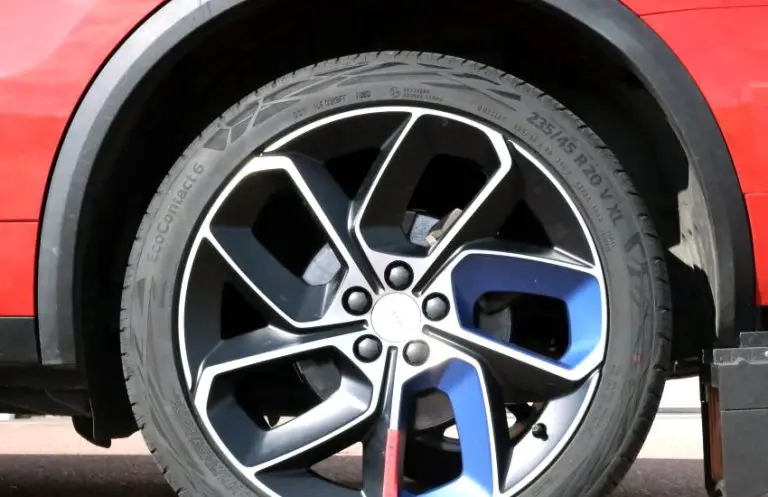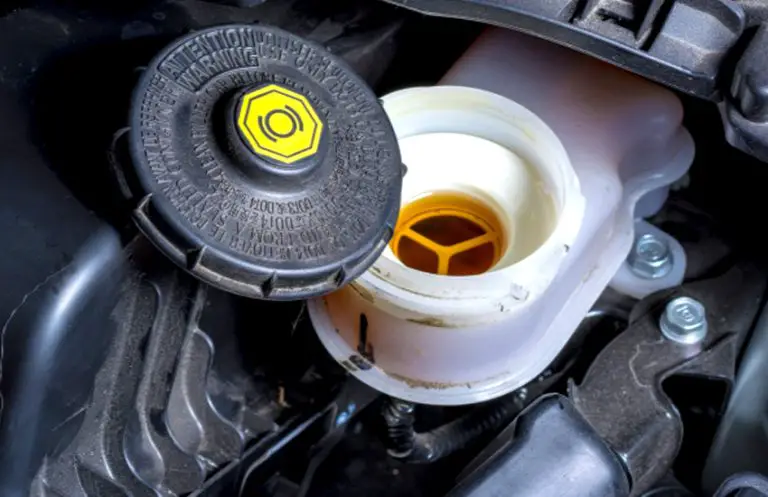Brakes can last anywhere from 20,000 to 60,000 miles when they are grinding. Grinding indicates that the brake pads and rotors are worn, suggesting immediate inspection and potential replacement.
When grinding occurs, it is a signal that the brake pads and rotors have worn down, causing metal to metal contact. This friction increases the likelihood of significant damage to the braking system, necessitating prompt attention from a professional mechanic.
Typically, the lifespan of brakes is influenced by various factors, including driving habits, road conditions, and the quality of the brake components. Therefore, it is crucial to address any grinding noise promptly to avoid further damage and ensure safety on the road. Regular maintenance and timely replacements will contribute to extending the lifespan of your vehicle’s braking system.

Credit: tediousrepairs.com
Causes Of Grinding Brakes
When brakes start grinding, it often indicates serious issues. Let’s delve into the main culprits behind grinding brakes.
Worn Brake Pads
Brake pads wear down due to friction, causing metal-on-metal contact and resultant grinding noises.
Damaged Brake Rotors
Warped or scored rotors from prolonged exposure to extreme heat can lead to brake grinding.
Contaminated Brake Fluid
If brake fluid gets contaminated with moisture or debris, it can cause brake components to grind against each other.
Factors Affecting Brake Lifespan
Understanding the factors that influence the lifespan of your vehicle’s brakes is crucial in maintaining optimal performance and safety on the road.
Driving Habits
Gentle braking and avoiding sudden stops help extend the life of your brakes.
Road Conditions
Driving in heavy traffic or on hilly terrain can lead to increased wear and tear on your brakes.
Environmental Factors
Extreme temperatures and humidity levels can impact the efficiency of your brakes.
How Long Do Brakes Typically Last?
Brake lifespan depends on driving habits and maintenance. Grinding noise indicates worn brake pads needing prompt replacement. Regular inspection and timely servicing help extend brake longevity.
Average Lifespan Of Brake Components
Understanding the lifespan of brake components is crucial for every car owner.
Most brake pads and rotors are designed to last between 30,000 and 70,000 miles, depending on several factors.
When it comes to brake pads, their durability can range from 30,000 miles for standard brake pads to up to 70,000 miles for high-quality ceramic brake pads.
On the other hand, the lifespan of rotors can vary between 50,000 and 70,000 miles.
It’s essential to note that these figures are just averages, and individual driving habits, road conditions, and brake maintenance can significantly impact the lifespan of brake components.
| Brake Component | Average Lifespan |
|---|---|
| Standard Brake Pads | 30,000 miles |
| Ceramic Brake Pads | Up to 70,000 miles |
| Rotors | 50,000 – 70,000 miles |
Factors That Can Shorten Brake Lifespan
Several factors can significantly shorten the lifespan of brake components, requiring more frequent replacements.
- Driving habits: Aggressive driving styles, such as constant hard braking or riding the brakes, can wear down brake pads and rotors more quickly.
- Environment: Driving in areas with high levels of dust, gravel, or salt can accelerate brake wear.
- Road conditions: Frequent braking on steep hills or stop-and-go traffic can put extra strain on brakes.
- Brake material: Lower-quality brake pads and rotors may wear out more quickly compared to their high-quality counterparts.
- Vehicle weight: Cars carrying heavy loads or towing trailers may experience increased brake wear.
Considering these factors, it’s essential to keep a close eye on your brake performance and conduct regular inspections to ensure your brakes are in optimal condition.

Credit: nrsbrakes.com
Tips For Prolonging Brake Life
Extend the lifespan of your brakes by avoiding grinding noises. Regular maintenance and timely replacements can lengthen the durability of your brake system. Detecting grinding early can save you from costly repairs and ensure your safety on the road.
Regular Brake Inspections
Regular inspections are vital for identifying any issues with your brake system and addressing them promptly to prevent further damage.
Proper Braking Technique
Using proper braking technique by avoiding sudden or hard stops can reduce wear and tear on your brakes, helping them last longer.
Choosing High-quality Brake Components
Investing in high-quality brake components can significantly extend the lifespan of your brakes, ensuring better performance and durability.
Signs That Brakes Need Replacement
When it comes to vehicle maintenance, recognizing the signs that your brakes need replacement is crucial for maintaining optimal safety on the road. There are several clear indicators that it’s time to replace your brakes, including squeaking or squealing brakes, noticing vibration when braking, and experiencing reduced braking performance. As these warning signs may vary from one vehicle to another, understanding these signals can help prevent further damage and ensure efficient and safe brake operations.
Squeaking Or Squealing Brakes
If you hear squeaking or squealing sounds coming from your brakes, it’s a clear indication that they’re reaching the end of their lifespan. This noise is typically caused by worn-out brake pads, which have a metallic wear indicator that emits a high-pitched sound when it comes into contact with the rotor. Ignoring this warning sign can lead to metal-to-metal contact, potentially damaging the brake rotor and increasing the risk of brake failure.
Vibration When Braking
Vibration when braking is often a sign of warped brake rotors, causing an uneven contact surface for the brake pads. As a result, you may feel a pulsating sensation in the brake pedal or steering wheel during braking. This not only affects the stopping power of your vehicle but can also lead to premature wear of the brake pads and reduce overall braking effectiveness.
Reduced Braking Performance
Experiencing reduced braking performance, such as needing to apply more pressure on the brake pedal or a longer stopping distance, is a critical indication that your brakes need attention. This can be caused by worn brake pads, contaminated brake fluid, or even a malfunctioning brake system. It’s essential to address this issue promptly to avoid potential accidents and ensure your safety on the road.
Maintenance And Care For Brakes
Your vehicle’s brakes are a vital component that ensure your safety on the road. Taking proper care of your brakes is essential to maintain their longevity and functionality. Regular maintenance and care can prevent issues like grinding noises and premature wear. In this section, we will discuss some crucial aspects of brake maintenance and care under three main headings – Brake cleaning and lubrication, Proper storage of the vehicle, and Regular fluid checks and changes.
Brake Cleaning And Lubrication
Regular cleaning and lubrication of your brake components are essential to ensure their smooth operation and prevent grinding noises. Here are some key points to keep in mind:
- Remove the wheels to access the brake components effectively.
- Use a brake cleaner to remove dirt, grime, and brake dust from the brake pads, rotors, and calipers. A clean and debris-free braking system helps maintain optimal performance.
- Inspect the brake components for any signs of wear or damage while cleaning.
- Apply an appropriate brake lubricant to the moving parts, such as the caliper pins and slider bolts. This helps prevent corrosion and ensures smooth movement, reducing the risk of grinding noises.
Proper Storage Of The Vehicle
If you are not using your vehicle for an extended period, proper storage is crucial to protect the brakes from unnecessary wear. Follow these guidelines:
- Choose a dry and covered area to park your vehicle. Moisture can lead to corrosion and rusting of brake components, causing them to wear out faster.
- Engage the parking brake to prevent the vehicle from rolling. However, do not forget to release it before driving to avoid potential damage and grinding noises.
- If possible, use wheel chocks to prevent unnecessary pressure on the brakes while stationary.
Regular Fluid Checks And Changes
The condition of your brake fluid plays a crucial role in maintaining brake performance and preventing grinding noises. Follow these steps to ensure optimal fluid levels:
| Steps | Guidelines |
|---|---|
| Check brake fluid levels | Visually inspect the brake fluid reservoir and ensure it is between the minimum and maximum marks. Top up if needed with the recommended brake fluid type. |
| Inspect for fluid contamination | Brake fluid should be transparent. If it appears cloudy or contaminated, it may be time for a fluid change. |
| Perform regular fluid changes | Follow the manufacturer’s recommended intervals for brake fluid changes. This ensures the brake fluid remains in optimal condition, reducing the risk of braking issues. |
By adhering to these maintenance and care practices, you can help prolong the lifespan of your brakes, prevent grinding noises, and ensure your vehicle’s braking system functions optimally when you need it the most.

Credit: www.facebook.com
Conclusion
To wrap it up, it’s important to be proactive in maintaining your brakes to ensure their longevity. Regular inspections and addressing grinding noises promptly can prevent further damage to your braking system. Remember, the lifespan of brakes can vary depending on various factors, so it’s crucial to have a professional assess your specific situation.
By staying vigilant and taking necessary precautions, you can enjoy safe and reliable braking for an extended period.


